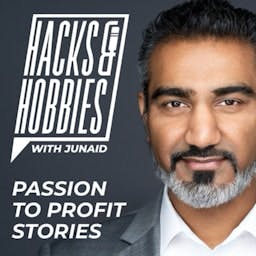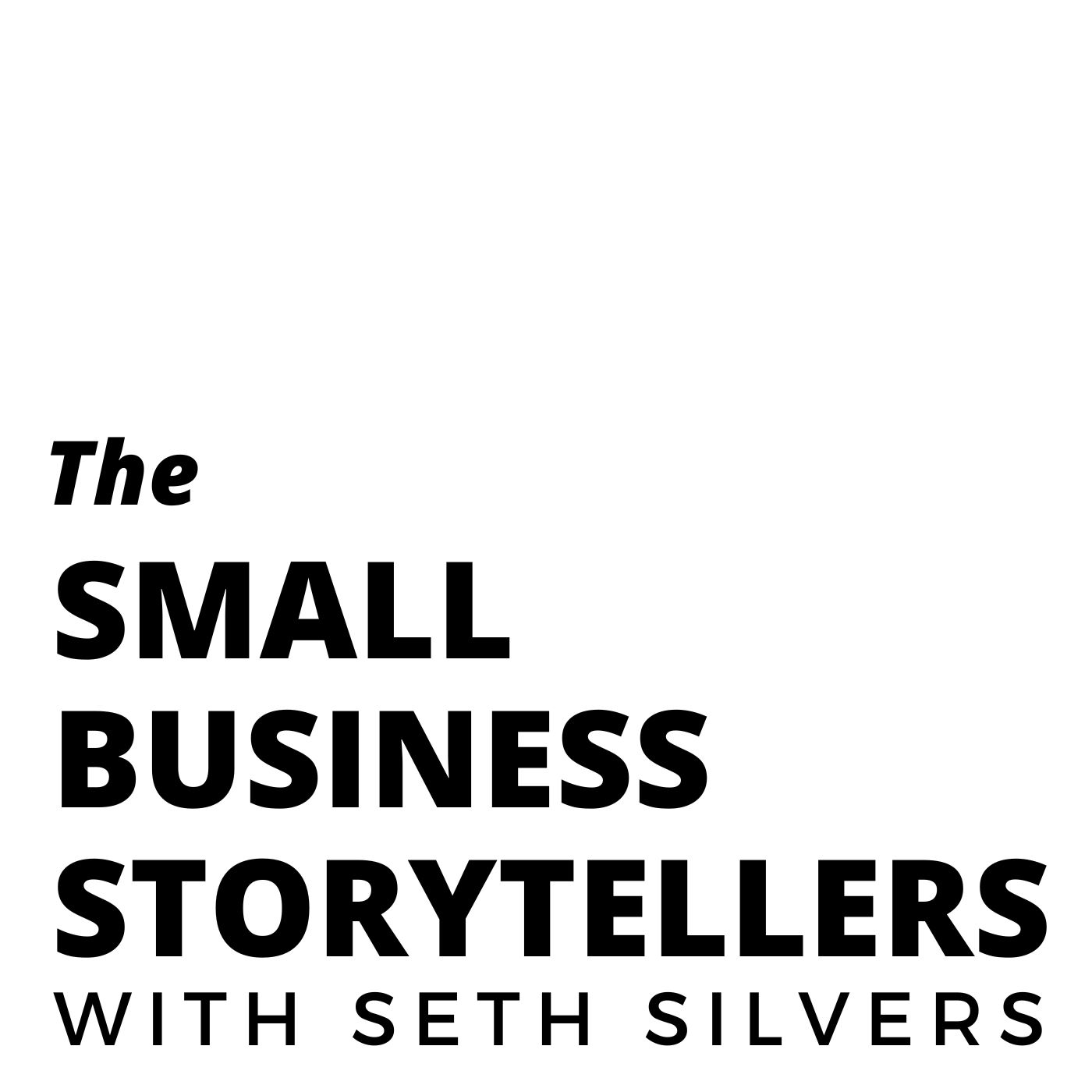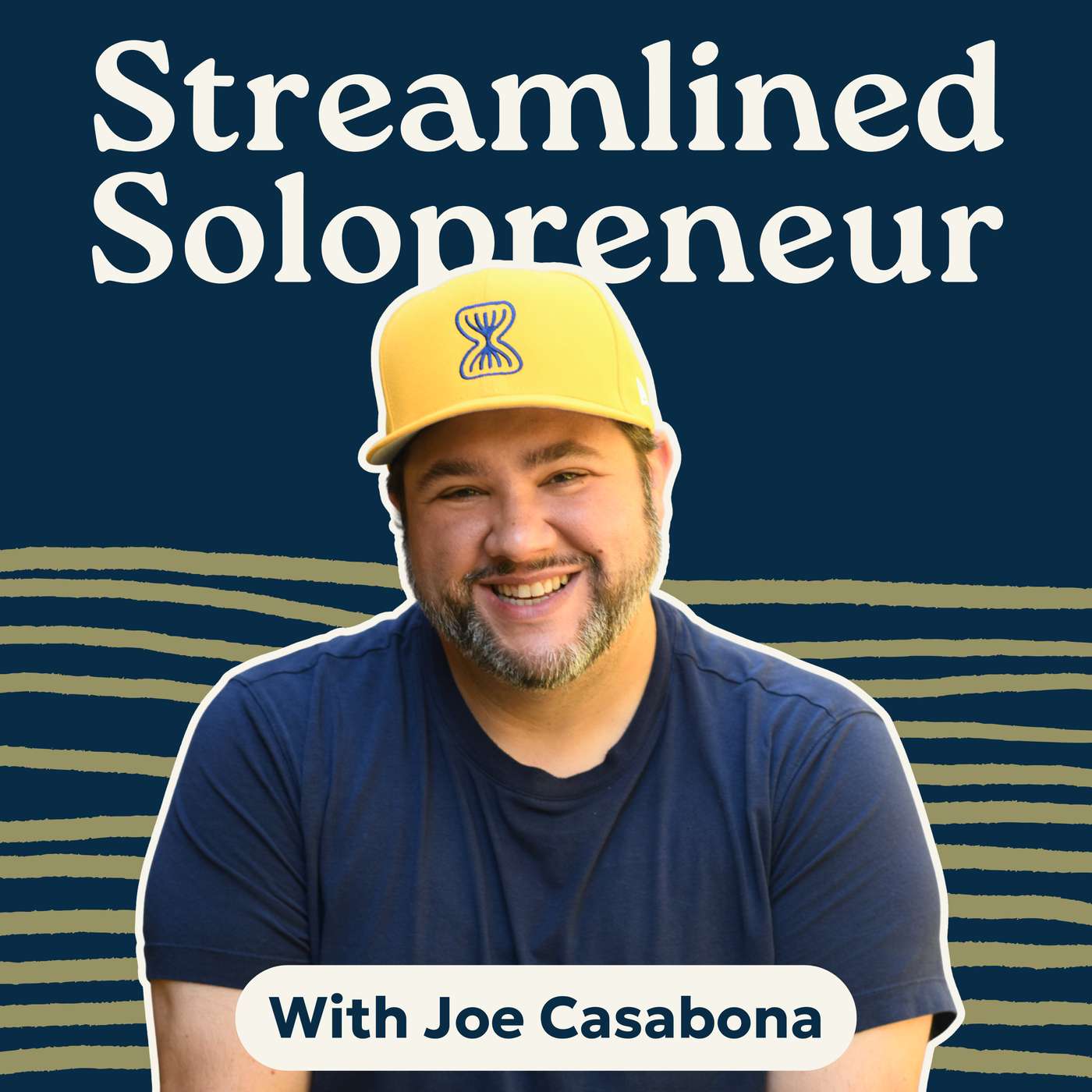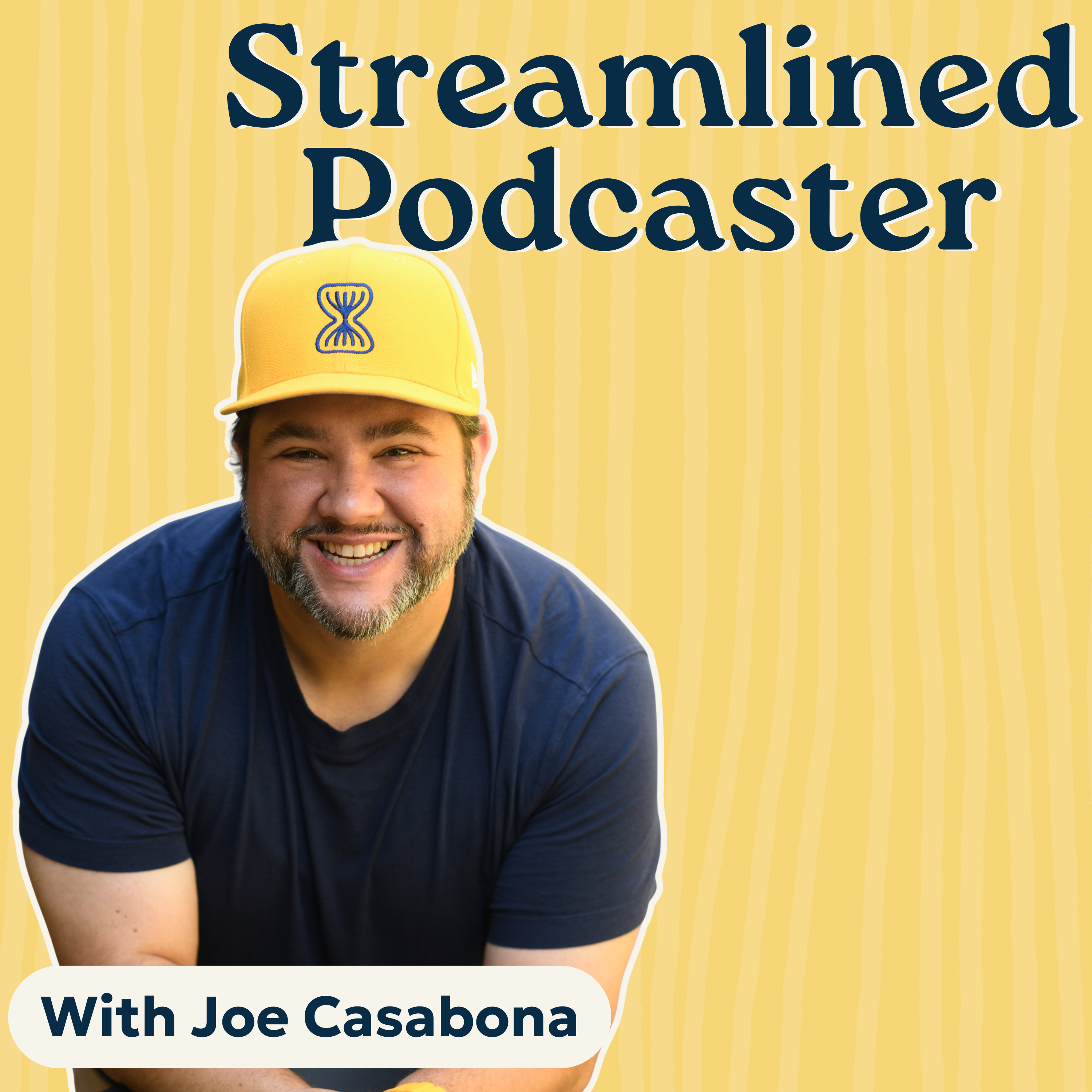Podcasting Made Simple
Podcasting Made Simple is the premier podcast about podcasting! We’re here to help podcast guests and podcast hosts reach more listeners and grow their income so they can change more lives! Join Alex Sanfilippo and other podcasting industry experts as they share how you can level up on either side of the mic! (Show notes and resources: https://PodMatch.com/episodes)
Podcasting Made Simple
Deciding What Stories To Tell On Podcasts | Sean Tyler Foley
MORE FROM THIS EPISODE: HTTPS://PODMATCH.COM/EP/161
Learn from Sean Tyler Foley, a former child actor and stuntman who thought his story was boring and didn't even have a story to tell, how to find, craft, and tell a compelling story that will engage and captivate any audience. Sean explains an actionable exercise you can do to discover five critical stories from your past that can be used to engage any audience. (The thing you're afraid to say is what your audience needs to hear.) Additionally, Sean will share how to perfectly tailor your five stories in a way that will leave your audience spellbound.
MORE FROM THIS EPISODE: HTTPS://PODMATCH.COM/EP/161
PodMatch has officially launched a podcast network for independent interview-based podcasts! To apply to be part of the network, please visit https://PodMatch.com/network and press the "Join Network" button in the top center of the screen. While you're there, be sure to check out some of the incredible shows in the network!
Hi now, even with my bio, I'm sure you'd be surprised to hear that, I think my life is boring. Because I've had to live it and same with you. If I'm, if you look back in your life, do you see your milestones? Do you see your accomplishments? Do you see your struggles? And do you see them as just mundane happenings or do you see them as exciting Hollywood blockbusters? See, for me, I don't, I don't think of my life as, as exciting, and even though I've been in film and TV, been on stage since six years old, I mean, you heard the bio, I still feel that my life is just my life. I mean, there's nothing exciting to it and it wasn't until I really had to start extracting my own story that I realized; your story, doesn't have to be, a Hollywood blockbuster. It doesn't need to be directed by Michael bay to have an impact on an audience. What really matters is that we find those key moments in our life that were important to us. And then we speak about it in a way that resonates with us. And if it resonates with us, it will resonate with people who went through something similar. So I'm going to walk you through a very quick exercise. Won't take more than about 10 minutes for us to extract at least five key stories from your life that you can use to tell a compelling story, to make a point to illustrate a feeling or a situation, so that your audience is on board with you, and really feels captivated by the words that you're using. So the first thing I need you to do is use very simple, third grade math and divide your age by five. Don't worry about decimal places. If you use the third grade math that you learned, way, way long ago, you'll remember that we rounded to the whole and then, had a remainder, so, and that's all I want you to do. So you'll be dividing in increments of 5, 5, 10, 15, 20, 25, 30, 35, 40, 45, 50 or above and beyond. For me, I'm 42. So I'm going to round to 40 divided by five, gives me eight. Now I have that little two remainder and you will have a remainder from zero to four. So 1, 2, 3, or four, whatever that is, tack it onto the beginning. For me again, 40 divide by five. It gives me increments of eight years. And then I have this two remainder and attacking onto the beginning. And at the very beginning of the story, I'm going to tack on my two years. So instead of my first epoch being zero to eight, it's now zero to 10. And then I go 11 to 18, 19 to 26 27, to and continue on like that. The whole reason we want to do this is we just want to be able to visually distinguish time periods in our life and in five, even time periods. Now, what I want you to do is I want you to look at that time period; the first one and ask yourself, what is the most immediate memory that comes to me when I think back to this first time period. For me, when I think back to my first time period, which as we've determined is zero to 10 years old, I have two very distinct memories. They're both auditory, and that's a key thing to remember when you're doing this exercise. It could be a sound, it could be a smell, could be a color, could be a feeling. It could be a vivid image or, even, just kind of an ethereal memory. But it's the thing that when you think too back to that time period, it's the first one that pops to your head. That's what I want. I don't want you to really have to think on this. When I say from your first time period, what's your first memory. Not necessarily chronologically, but what's the first one that pops to your mind. And that's what I want us to focus on. For me, like I said, I have two they're both auditory. The first one is the sound of an audience applauding and clapping, and then giving me a standing ovation when I was six years old. It, it, it ignites me, it excites me. It's pretty much dictated my life ever since. The other sound that is crystal clear in my mind, and I will never ever forget it, is the sound that my mother made the first time, she was told by our family physician and a police officer who had come to our door, that my father would never be returning home, that he had passed away in a car accident. She let out this, animalistic, guttural heart-wrenching spine tingling sound that I never want to hear again in my life ever. And again, that sound has really dictated and pushed a lot of the things that I've done, a lot of choices that I've made in my life. And so my first two very distinct memories from my time period, that first time period of my life, are auditory. Now they could be something different for you. And again, we're only going to focus on one at a time so that we get five. But you can go back and revisit this exercise over and over and over again. And as you get more memories, you can write them down. But understand the more you do, the more work comes later on. If I do this exercise again, and I look at my next time period, 11 to 17 or 11 to 19, I guess it would be if I add on the eight years, 11 to 19. I have again, two very distinct memories. The first one being the first time I openly mourned my father's passing. I was in sixth grade at an elementary assembly for the final award ceremony of the year, and I had won the top student of the school. And it came with a little, certificate and a little plaque and a bursary check for a couple hundred dollars. And I remember standing up and walking past the auditorium along the side, where my mum was seated and all the parents were sat alongside and beside my mum was an empty chair. Now you have to understand this was a packed room because it was the end of the year celebration, parents, faculty, staff, like everybody was there, including the students. And so to have an empty chair was very odd. And I remember walking past it and thinking my dad should be sitting there. And in that moment I had this cascade of thought, this bullet train that left the station and just wouldn't stop. And it was just runaway. And I thought to myself, my dad's not going to see me get this award. And then instantly the cascade started. My dad, isn't going to see me graduate from the sixth grade. He won't see me graduate from high school. He won't see me enter university or graduate university. He won't see me get married. He'll never know his grandchildren. All of these things just tumbled through my head. And so as I'm going up to get this award, I just start crying and everybody thought I was crying cause I was happy. In reality, it was the first time the gravitas of my father's passing really washed over me. And then when I was 17, I had a medical incident that left me paralyzed for almost a year. The left side of my body was completely paralyzed and I was going to a fine arts high school. So this really had an impact on me in that, you know, as an actor, this is how I make my living, and what am I going to do when my first, you know, it's just like this. And it was awful, completely devastating for me. And, so those are my two distinct memories. If I had to think back at on a time period, those are the two that, that pop really quickly to mind, and then I have supporting memories around them. And so this is the exercise that I want you to go through. Look at your time periods. Remember use simple math, just divide to evens, rounds of five and divide your life into five even time periods. And then look back, and what is your most significant or most impactful memory? What's the one that when you look back on that time period is the first thing to jump to mind. That's what you want to focus on. When you have those written down, it shouldn't take very long, 1, 2, 3, 4, 5, do this exercise, give it two to three minutes tops. Then what you want to do is for each one of those memories, answer two questions. The first question, why is this significant to you? What is the meaning behind it? Why is that the memory that stands out amongst all the others? Why is this the one that you focus on. Once you have those written down, and this is where this exercise gets very lengthy and I will encourage you to do it offline, once this whole seminar is over. Go back and ask yourself, what are the lessons that I learned in these events and what are the lessons that I needed to learn from these events. And they may be different, they may be the same, but try to go really deep in that, because there's multiple lessons that could be learned from each one of those. As you start to list out each one of these lessons for each one of these events. So you should have five events or five memories. And then you should have a cascade of lessons that you learned or lessons that you needed to learn, and again, they may overlap. What I want you to do is as you go through that, what is the through line? What is the theme that repeats in each one of these, and is there one? For me when I look through each one of mine, the through-line or the combined theme or the commonality within each one of my memories is actually grace. That I wouldn't be where I am today, if it weren't for each one of those events, putting me onto the path that I needed to walk. And so when I create my signature talk, I talk about the grace that I experienced through life and how it has propelled me to be the speaker and author that I am. For you, I would encourage you to find what those common themes are and then explore how that can be the main headline theme for your talk. And then, and this is, this is the real key. This is the secret sauce. Somewhere buried in there is very likely something that you are hesitant to talk about. And I would encourage you to explore that why as well. Because the thing that you're afraid to say is very likely the thing that your audience needs to hear. And I preach this in every one of the seminars that I teach and with every private client that I work with. When you can open yourself up and be vulnerable that way, that is when you have the most power and the most impact. And the thing is, the reason we want to explore these stories and why they're important to you is nobody knows your story better than you. It's really hard to throw you off mid tangent. If you're telling your own story from your own point of view and really highlighting the details, why was this important to you? What were you thinking in that moment? What were you feeling in that moment? What did you see? What did you experience? How did your body feel? How did the room feel? Were you in a room? Give details, set the scene for us, give us context, let us walk a mile in your shoes. They say never judge a person until you've walked a mile in their shoes. And you, and I both know we can't do that physically, but you telling your story is how I'll be able to do that metaphorically. So give me the details that allow me to experience what you experienced. And don't be afraid to say the thing that you are likely holding back, because it's those details, it's that vulnerability that will get your audience on your side and really flesh out your story and make it compelling. And whether you tell 1, 2, 3, or all five of these stories in sequence is entirely up to you, the audience that you're trying to serve. But I would caution you to remember, a great and wise saying from the
incomparable Les Brown:never tell a point without a story, never make, never tell, never make a point without a story never tell a story without a point. So I'll say it one more time because I screwed it up. Never tell us story without a point, never make a point without a story. The story will support your point, but you need to know why you're telling that story. And if you don't find that through line with the one, with all five, maybe tie together the one, two or three that support the through line that you need to give the points you need to land with the audience that you're speaking to and understand you can tailor your talk each time. Anyway, I hope that exercise was helpful. I'm looking forward to answering your questions. So if you have anything, feel free to pop them in. And, well, I hope you enjoyed this training. Thank you.
Podcasts we love
Check out these other fine podcasts recommended by us, not an algorithm.

Content Is Profit
BIZBROS
Win The Content Game
Deirdre Tshien - CEO & co-founder of Capsho, AI-powered Content Marketer (the fastest way to repurpose and market your expert content)
Fastlane Founders and Legacy with Jason Barnard: Personal Branding, AI Strategies, and SEO Insights
Jason Barnard Entrepreneur and CEO of Kalicube
Hacks and Hobbies with Junaid Ahmed
Junaid Ahmed
I Have A Podcast by Vinnie Potestivo
Vinnie Potestivo
The Small Business Storytellers with Seth Silvers
Seth Silvers
Streamlined Solopreneur: Tips to Help Small Business Owners Grow Without Burnout
Joe Casabona, Business Systems Coach
Insider Secrets to a Top 100 Podcast with Courtney Elmer | Podcasting Strategy for Business Growth
Courtney Elmer | PodLaunchHQ.comDo The Thing
Stacey Lauren
Tech Bytes - Software Growth & Strategies
Dan Hafner - No-Code Software Expert

